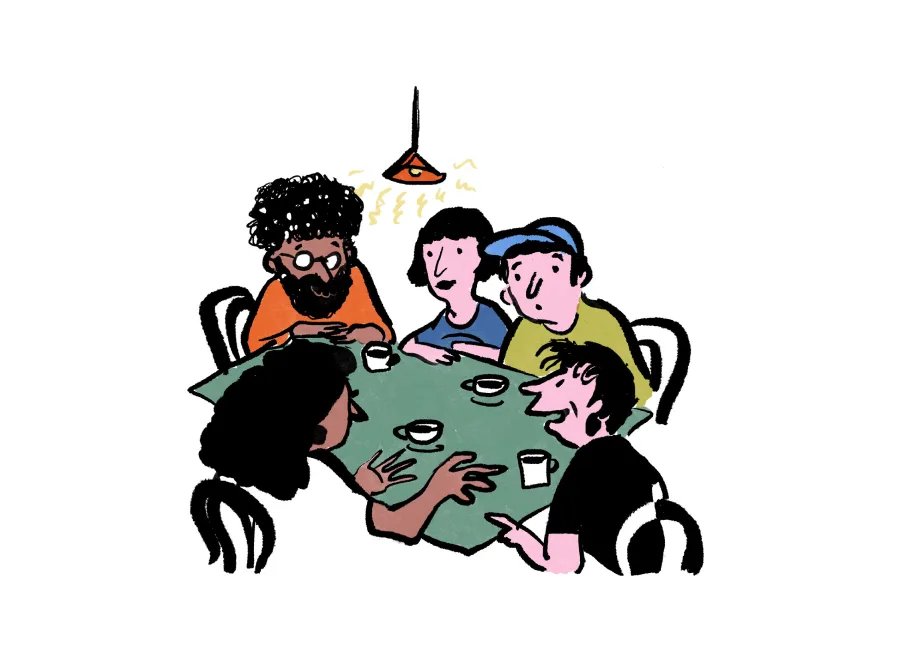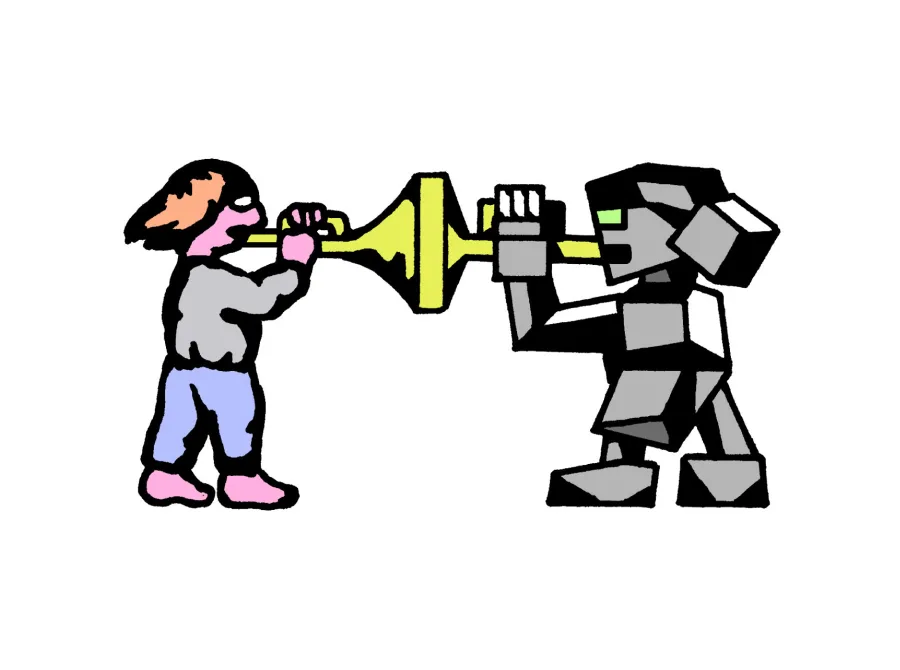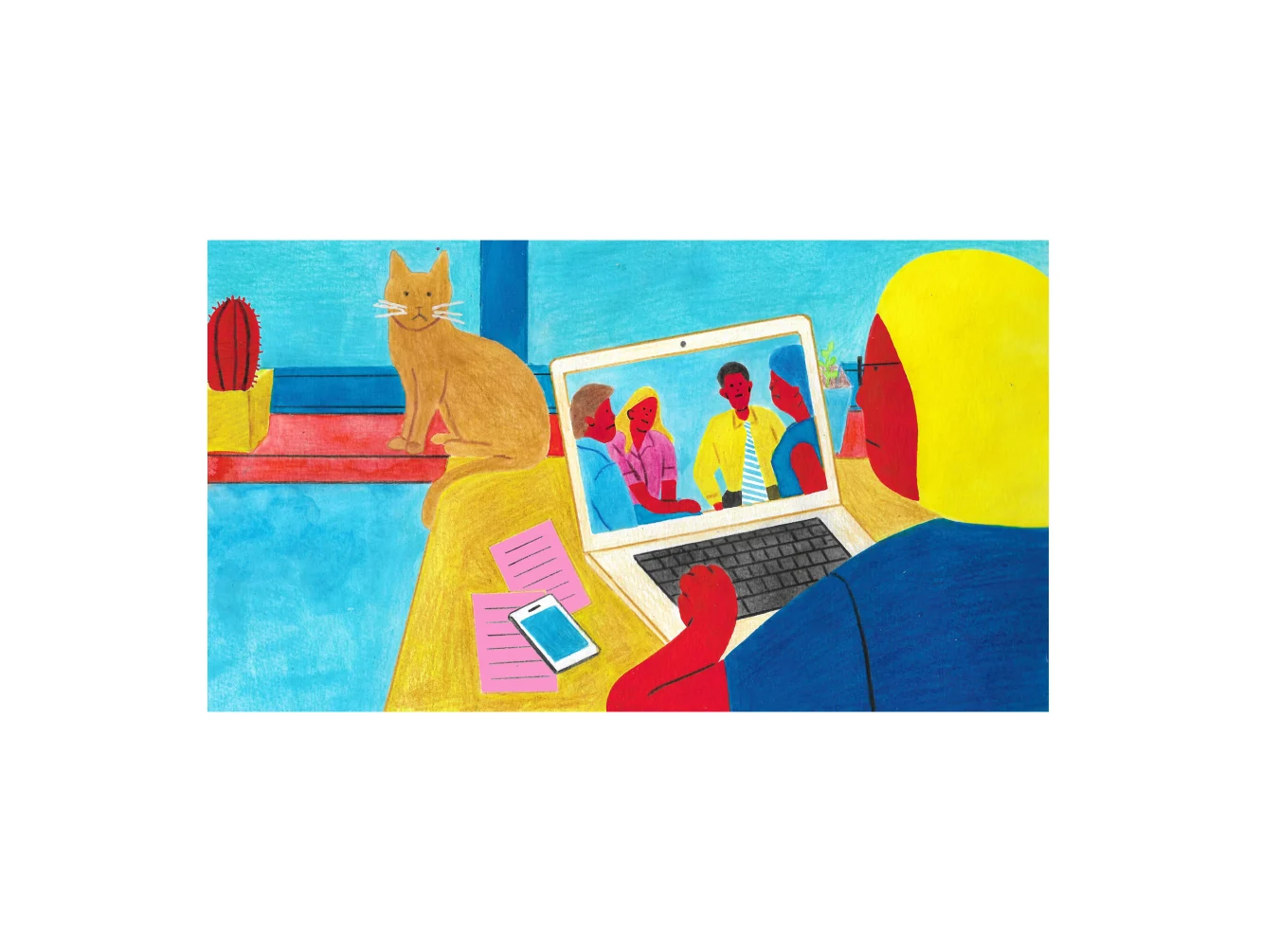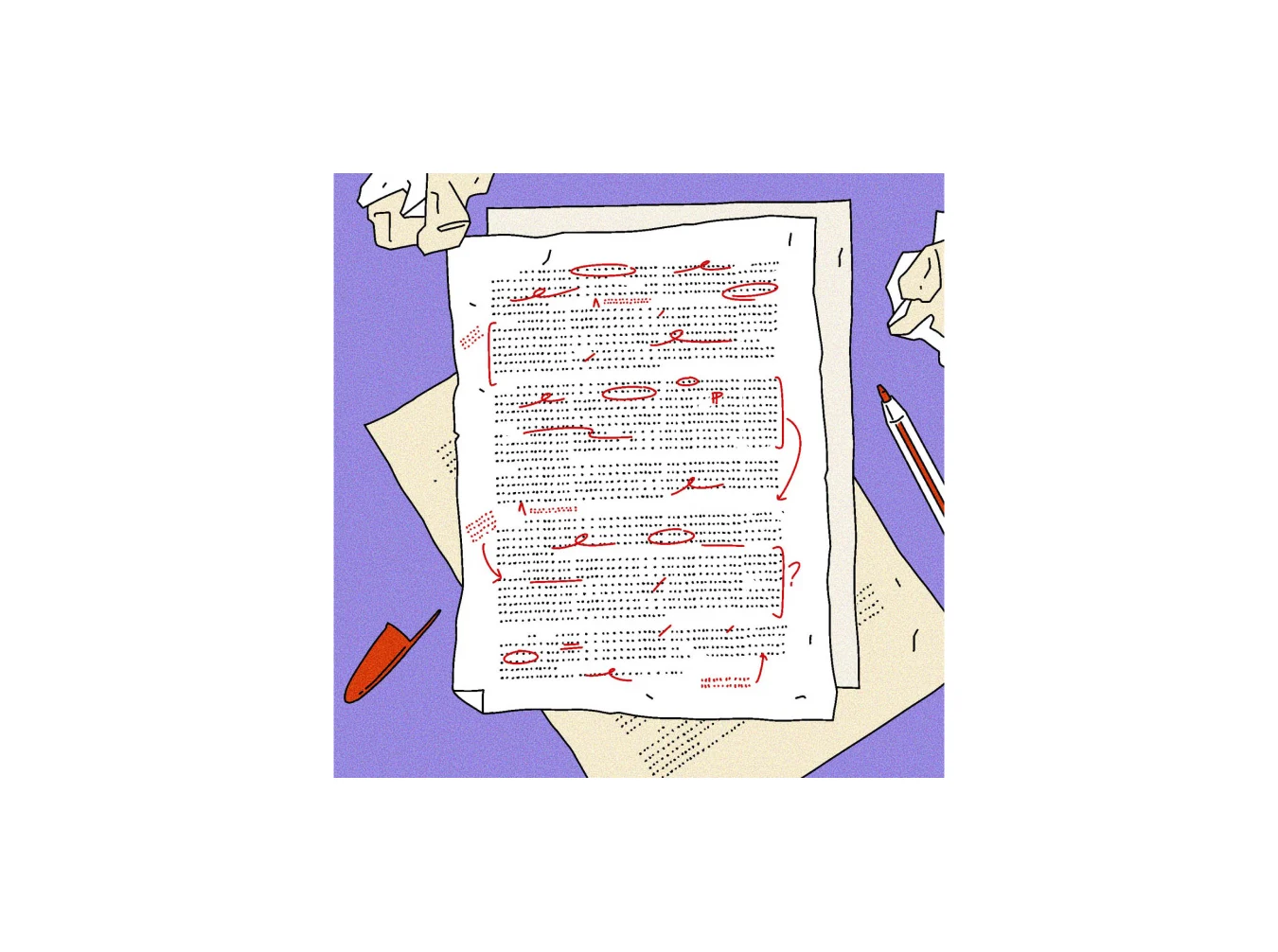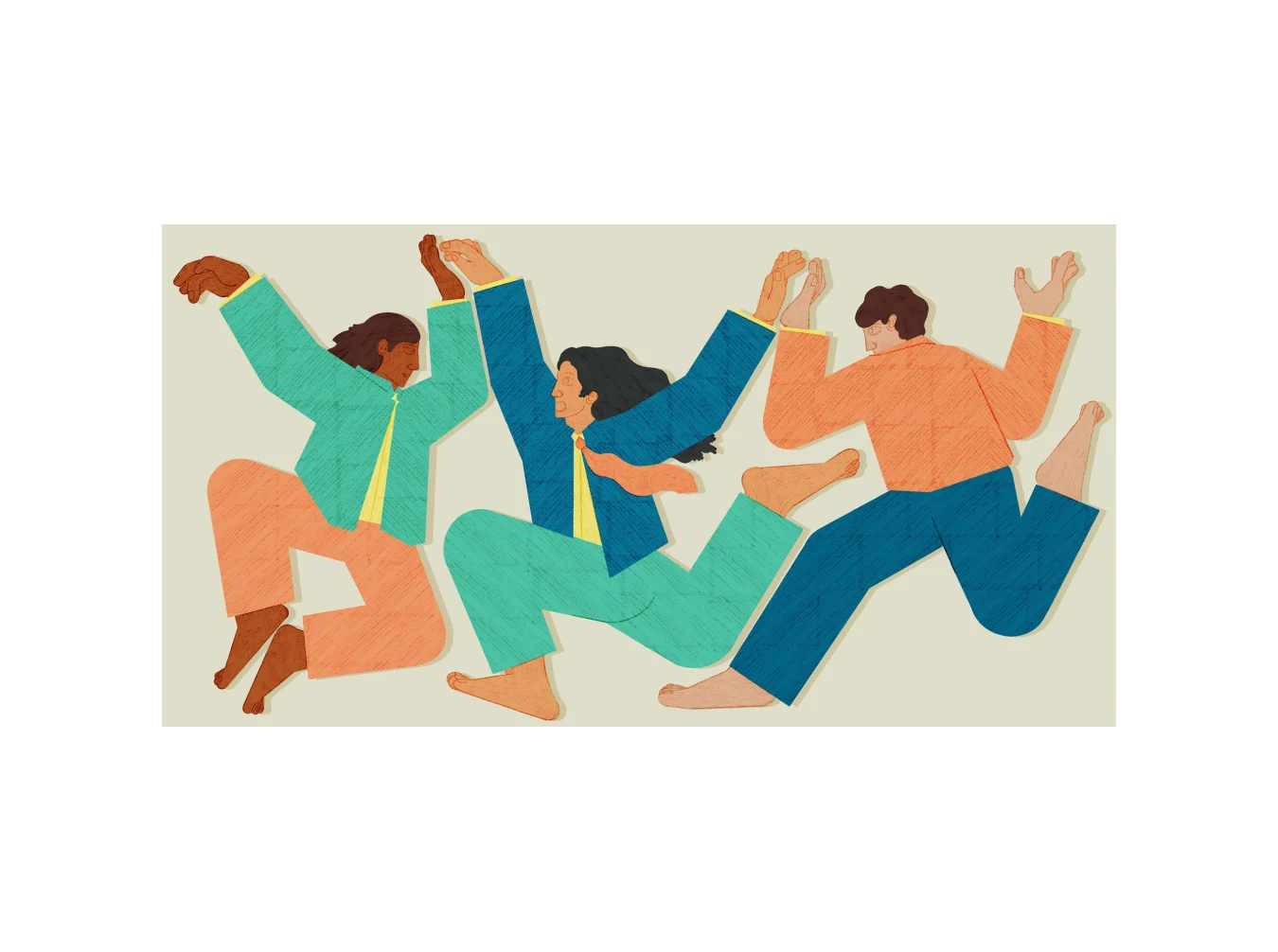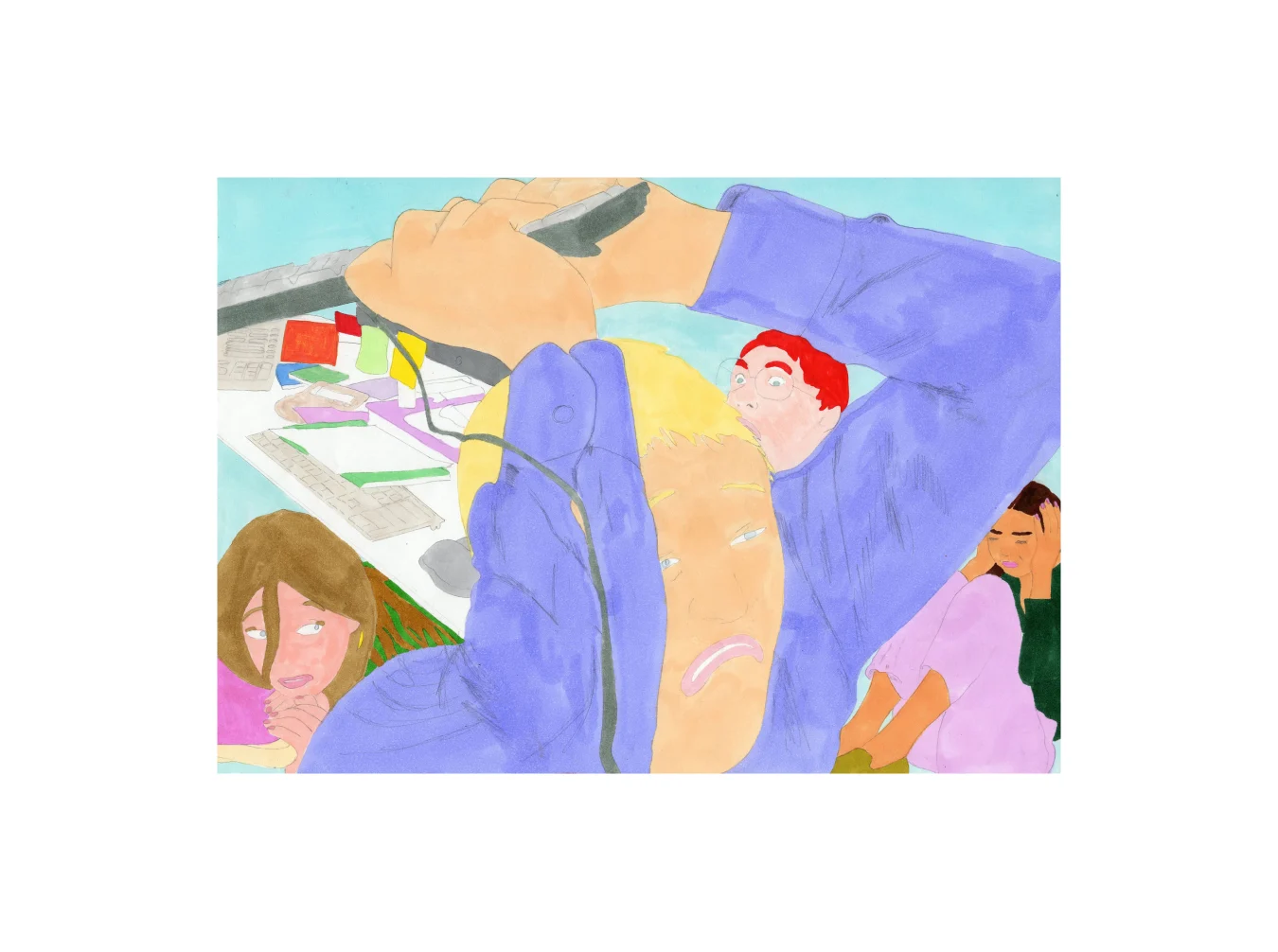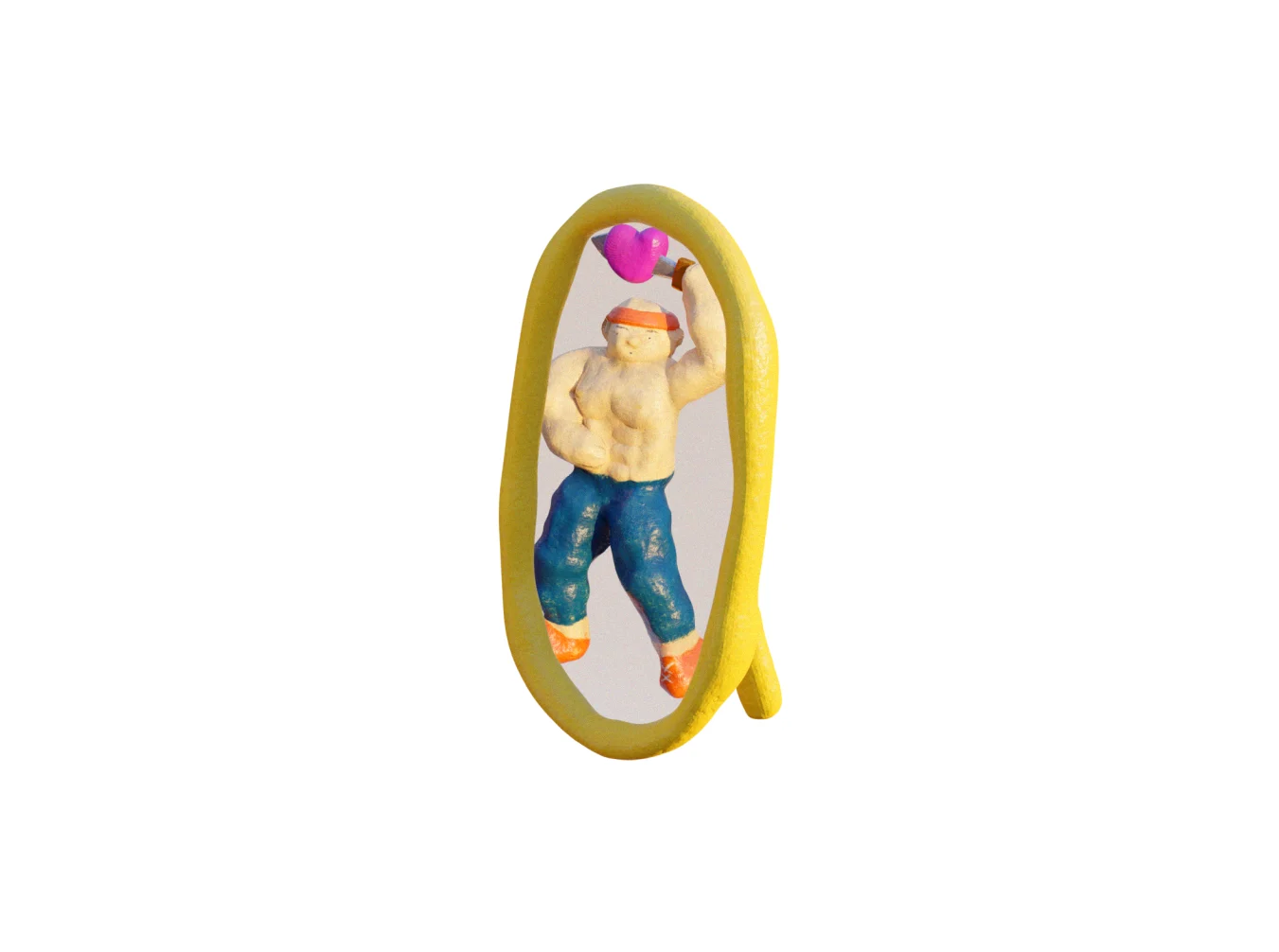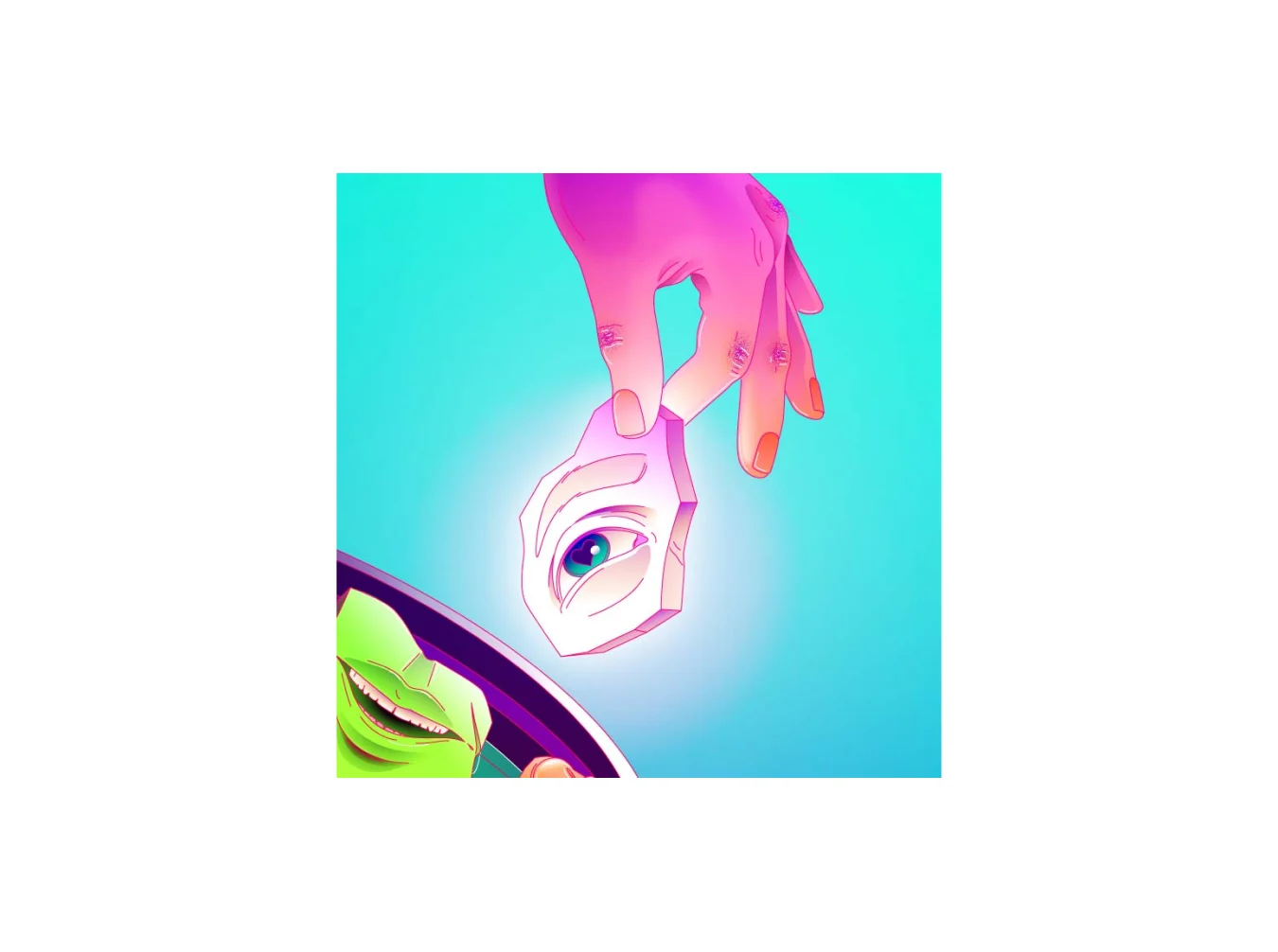
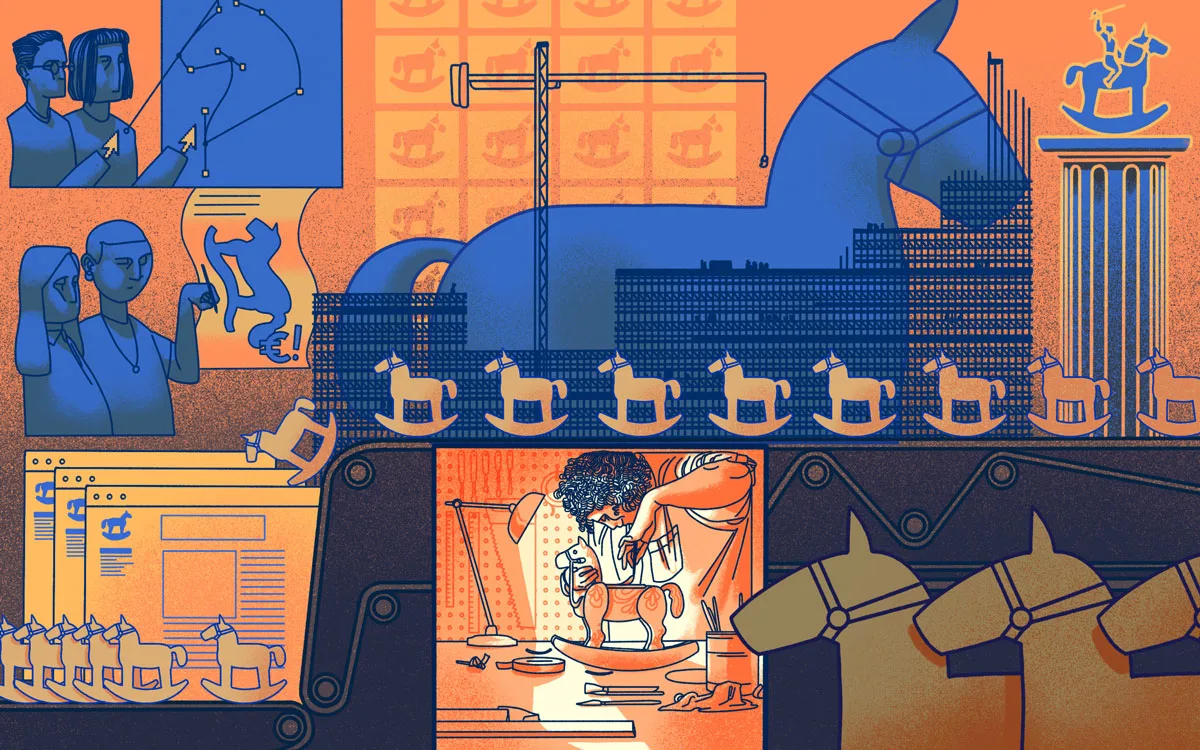
Usually, in a full-time role, you’ll be called into a meeting every so often to reflect on your progress. Sometimes, if you’ve excelled, you’ll be rewarded with a pay rise and a change of job title. Freelancing is very different: not only are you far less likely to receive pats on the back (ever), but you run the risk of feeling stagnant without the boost of validation from a boss-like figure. James Cartwright speaks to some freelancers about how this feels, and how you can learn to promote yourself in your own way.
Illustrations by Avalon Nuovo
Before I became a full-time freelance whatever-it-is-I-am I worked in steady, salaried jobs with official job titles that were attached to clearly defined job descriptions and slightly less clearly defined wage brackets. Every year I’d have to prepare for an appraisal with my line manager, in which we’d assess how well I was meeting the specifications of that job description. Sometimes I was falling pretty short and would get a dressing down and set targets for improvement. Sometimes I was surpassing expectations, and could make the case for a promotion and a pay rise, which would invariably come with a new job title.
While I personally found the appraisal process excruciating – on a couple of occasions it mirrored the teenage hell of justifying a terrible school report to furious parents – the consistent rhythm of the process was reassuring, and early on in my career the upgrades in job title felt significant. They never came with much more money, but they were clear evidence of success. I’d ticked the right boxes, and that felt pretty good.
The ultimate test of your working life is whether you want to get out of bed in the morning to do your job
A few years later, working in a job I’d long since lost interest in, I was offered a promotion and a pay rise that I wasn’t expecting. I watched my boss’ face change from mildly bemused to irritated to angry as I attempted to exchange the pay rise for more holiday and weaseled out of a new title. I didn’t want additional responsibility and I didn’t want to commit more time to the job, even for more cash. Afterwards, we both knew I wasn’t going to stick around for much longer. And I didn’t.
I’ve been freelancing ever since, and not once have I been offered a promotion. Not a single client has approached me to say that I’ve ticked all the right boxes and they’d like to offer me more cash or an ego-boosting new job title. All of that responsibility now falls to me, and in many ways I wish it didn’t. The grass in the freelance pasture isn’t always greener.
Setting my own professional goals and benchmarks takes a hell of a lot more effort than having an employer do it for me, and justifying increased fees to clients is more complicated than any of those appraisals ever were. But it’s really a small price to pay for the flexibility it affords and the breadth of work I get to do. Plus, a little bit of introspection to work out what I want my career to look like is no bad thing, even if it means abandoning the idea of career progression altogether.
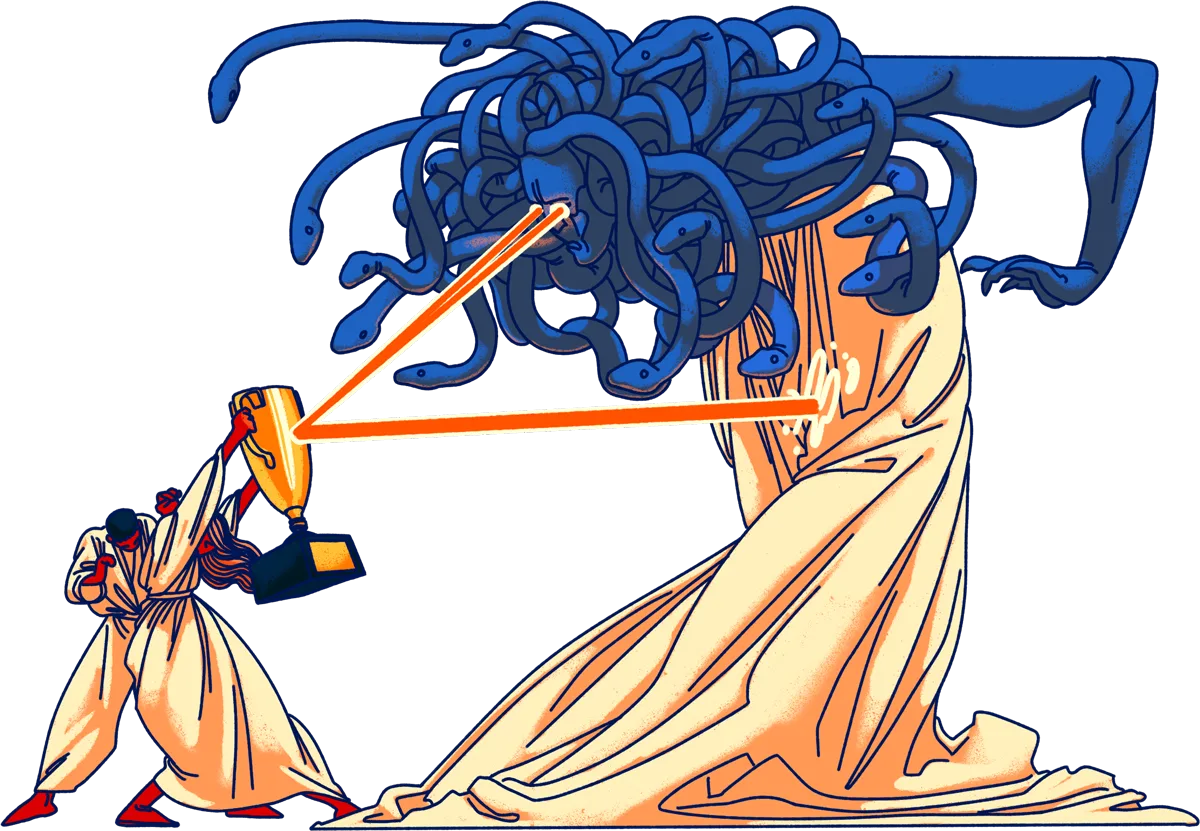
I’d rather stay true to myself than struggle under someone else's definition of success.
Among freelancers, the gradual redefinition of success and career progression is a pretty common occurrence. “Career progression was an important idea to me,” says illustrator Stanley Chow. “I have illustrator friends who have moved onto directing films, creating video games, expanding to be a design studio and I did envy them a little. They now feel it would be a step down to start illustrating again.
“I’ve tried my hand at starting a design studio in the past, employing animators, web developers and graphic designers, but the increased people management meant less time to actually illustrate plus taking on commissions I didn’t really want just so I could make sure I could pay my staff. I didn’t enjoy that. I discovered my limits and it became apparent that all I really want to do is illustrate. I just don’t want any more responsibilities than I have already.”
“When I was much younger I had quite a rigid idea of what success looked like,” agrees journalist Micha Frazer-Carroll. “I feel like my dream job was to be a writer or columnist at a left-wing broadsheet. Or to write a book or be nominated for awards, because this sort of thing is often positioned at the ‘top’ of the imaginary ladder of what journalistic success is. It was probably the sort of thing I'd seen on TV or heard other people speak about with admiration. These were the sorts of things protagonists had achieved at the end of all those cheesy ‘00s rom coms where the main character was always a budding journalist.
While you may find yourself uninterested in “concrete” measures of success, setting your own goals and lining up your own “promotions” is key if you want to feel like your freelance career is going anywhere. Here’s how you could approach it...

Nothing sustainable is built overnight.
There is no rush
It’s easy to feel that you should be doing some of your best work and getting noticed early on in your career. This is patently bullshit. Creating worthwhile opportunities takes time, and that demands patience.
“I always have goals in mind but I don’t get attached to how they will happen,” says freelance photographer Melissa Alcena. “I think it’s healthy to want to continue to grow within your life and in your career, understanding that we never stop learning, but I also go with my own flow because we all have our seasons.
“There are times where, no matter how hard I try, I don’t feel inspired and I could get really scared by that. But now I just take that time to pay attention to the other aspects of my life, making sure those are in alignment. Nothing sustainable is built overnight.”
If you feel ready, you are ready
One of the great comforts of the 9-5 is being told you’re ready for new opportunities by someone senior who’s given you a thorough assessment. This doesn’t happen to freelancers, so if you feel ready, you probably are ready. And if you’re not, just work it out as you go.
“Honestly, I think that in this business, there are moments where you can prepare for sure, but a lot of the experience comes with throwing yourself into new situations and learning that way,” says Melissa. “New opportunities can always be a bit daunting, but I’d rather just do the research and then throw myself in there. A part of being a photographer is also being a problem solver and a team player. Unexpected things come up and you just have to decide how you’re going to make things happen to the best of you and your team’s ability – and that’s part of being a creative, right?”
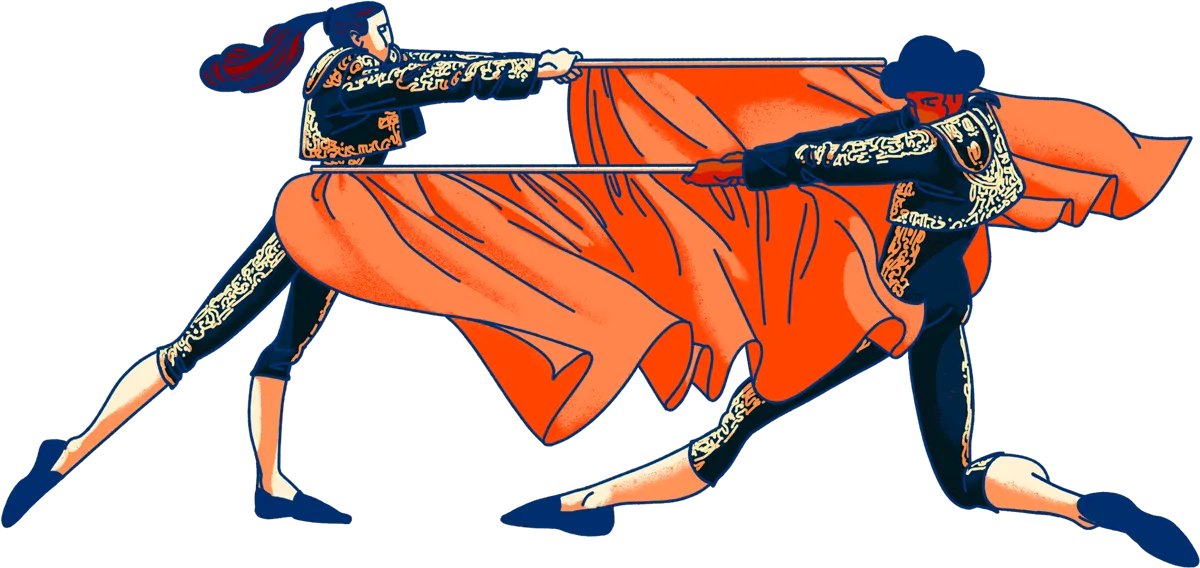
Personal growth is better than promotion
Whatever career path you’ve chosen, you’re going to be walking it for a long time. While it may feel good to have business cards (still a thing?) with an imposing job title on them, or to work exclusively with big-name clients, the ultimate test of your working life is whether you want to get out of bed in the morning to do your job, which may mean you have to work out a whole values system of your own.
“I’ve been in the industry long enough to develop an awareness that not all people who write a column, or have a book deal, or have won awards, are people I aspire to be like,” says Micha. “So the concept of the accolade bears less weight to me – it has almost fallen apart.
“As I've become more interested in politics, activism and organising (although I am not an activist myself), I've started to think about these things as means to an end, not the end itself. I no longer want a column for the sake of having a column or because it sounds like a 'good' thing to do, but because that platform has huge reach and thus potential to expose people to radical ideas. What transformative and exciting concepts can I sneak into a column at a national paper? Which unsuspecting reader might stumble across something that changes their worldview and inspires them to take action? The same logic can be applied to a book, or winning an award.
“My main interests now are about feeling like I'm growing, learning, stimulated, and, although it's a journalist cliché, am making an actual difference in the world. Also, making enough money to pay my rent. Other than that, I'm really turned off by the idea of ‘career progression’ for career progression's sake.”
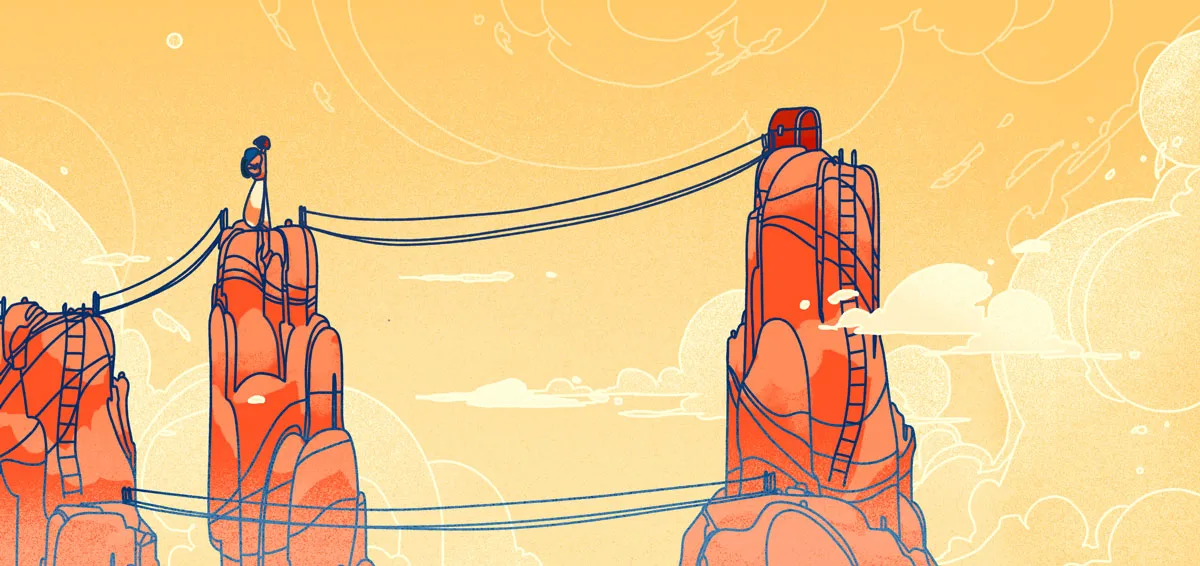
Don’t let other people’s ideas of success distract you
Sometimes opportunities present themselves that just aren’t the right fit – like my awkward promotion. When they arise, it can be hard to stick to your guns. “I've been in settings before where my desires for professional or personal development haven't been understood,” says Micha. “That can be difficult, because it's vulnerable in itself to state your needs clearly, let alone have them be turned down by someone in a position of power. But I'd rather stay true to myself than struggle under someone else's definition of success. I've also occasionally baffled (and maybe even annoyed) people by turning down some ‘big’ opportunities. But I try to be polite, and obviously no one is ever obliged to reveal their true reasoning when saying ‘no’ to work they don't want to do.”
Treading water is not failure
The myth of endless growth pressures us into thinking that each year should bring a new career benchmark and that your next project should be your best project. But constantly looking ahead can be a real distraction. “For me, there isn’t a, ‘Where do I go next?’” says Stanley. “That’s not to say I’ve reached my ceiling, I lack ambition, or there is no place left to go. I’m just very comfortable right now in my career. I’m just happy that I’m constantly busy.”
“Only you know what’s best for you and what your limits are,” agrees Melissa. “Progression to me is essential but it doesn’t have to be constant. Life can get in the way sometimes and I think it’s ok to take a step back if you need to, this isn’t a race or a competition.”
Promotions do just happen
Scheme and plan as much as you want, but you’ll never have total control over your career. Sometimes it will feel like nothing new has happened in years, other times that you’re drowning in new challenges. Currently Stanley is working on a series of kid’s books for Penguin Random House that he never expected, “But I’m very happy to be working on nonetheless. One presumes this may open other doors when they’re published next year. This is how my career has been for the past decade or so: doing one thing which leads onto many other things. I’m just very grateful that I have a career where I haven’t seemed to have peaked yet, even after 20 odd years in the business.”






